Home » Posts tagged '2023'
Tag Archives: 2023
The Interview with Professor Marian Wesoły Available with English Subtitles
We are very glad to announce that finally, after two years, the interview with Professor Marian Wesoły is available online with English subtitles on the website of the project Oral History and the Classics, here. We have already reported on shooting this interview here.
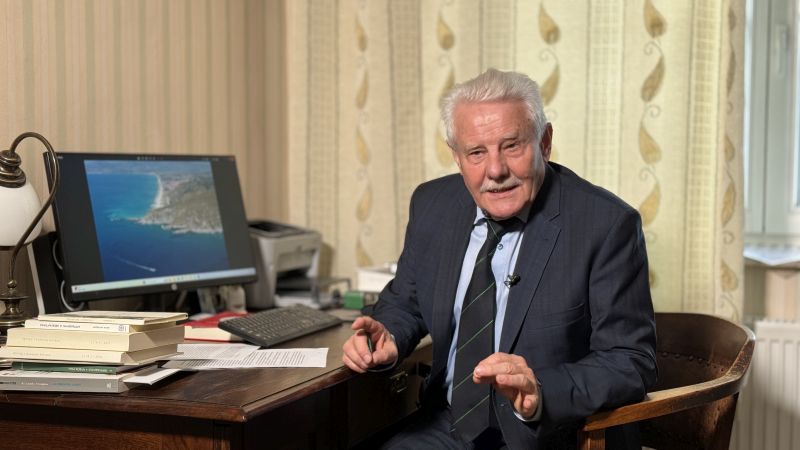
Professor Wesoły, at his desk at home, talked about his intellectual biography, his teachers, collaborators, colleagues, correspondents, about his academic adventures at research centres in Germany (Tübingen) and Italy (Naples), books and editions, and many other fascinating issues. Moreover, he shared his views on prospective developments of research in the field of ancient philosophy.
We want to encourage you, once again, to click here and watch the video.
Henryk Jakubanis and His Kyiv Years
Henryk Jakubanis (1879-1949), his life and intellectual legacy, have been in recent years the topic of research pursued by Mariam Sargsyan. In one of her papers, titled Henryka Jakubanisa (1879-1949) kijowski okres życia i twórczości historycznofilozoficznej (H. Jakubanis’ Kyiv Period of Life and Work in the History of Philosophy), she presented Jakubanis’ Kyiv years as fundamental and formative period of his intellectual biography. Her study has been published in Polish and can be downloaded here.
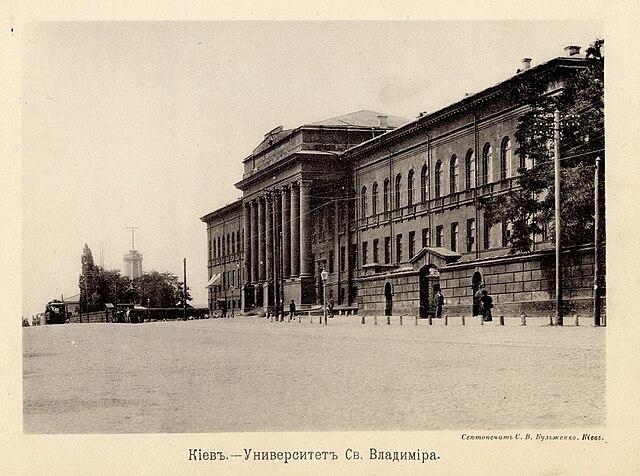
Kyiv period of Jakubanis’ life deserved a separate presentation, because our knowledge of his early career was far from satisfactory, not to mention some inaccurate or even false informations. M. Sargsyan was the first researcher who used Jakubanis’ documents from the University Library of the Catholic University of Lublin to such an extent, what was necessary to complete her task.
To present the life and academic activity of Jakubanis (on the right) in the Kyiv period in full, Sargsyan starts with his childhood and gymnasium education. Moreover, the history and philosophical traditions in the Saint Vladimir Imperial University of Kyiv are briefly sketched with an emphasis on Jakubanis’ study curriculum, the beginnings of his academic career and the personality of his supervisor, professor Alexei Gilarov. He was the professor who exerted the most significant impact on Jakubanis’ early works in the history of Greek philosophy.
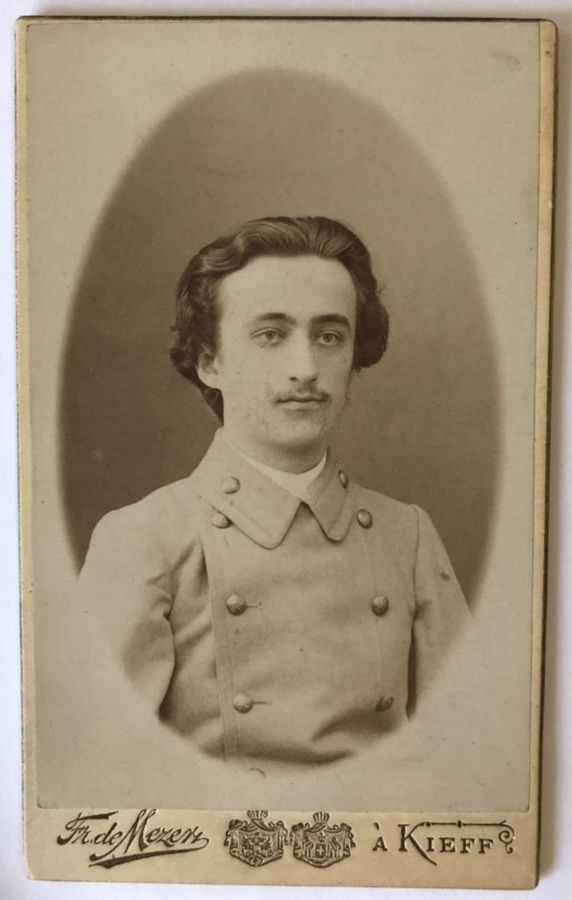
To conclude, it was in Kyiv where Jakubanis’ career as a teacher of classics and a researcher in the history of ancient philosophy started. Some of his achievements from this period are still of significance in the Russian-speaking world, for he is still remembered as the author of a work on Empedocles and one of the pioneers in translating fragments of this ancient thinker into Russian.
A Review of Plato in Poland 1800-1950
It is our honour to announce that the second review of the book Plato in Poland 1800-1950. Types of Reception – Authors – Problems (Academia, Baden Baden 2021) has just seen the light of day (the first one was announced here). The review was published in “Revue Philosophique de Louvain” 2023 (vol. 120, 1).
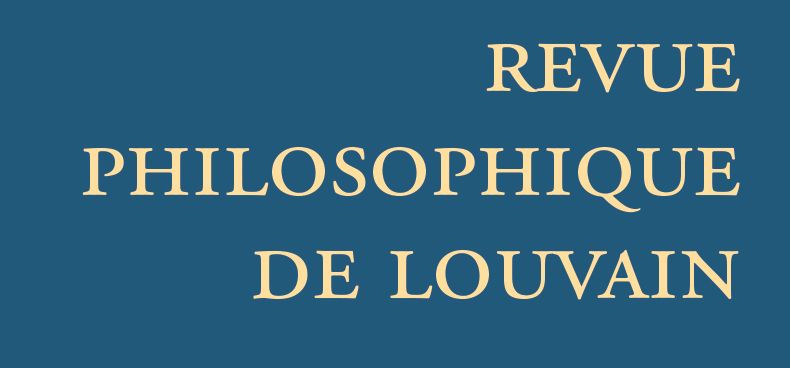
The review was kindly composed by professor Sylvain Delcomminette (Université Libre de Bruxelles). Professor Delcomminette is an expert in Plato’s philosophy, his current research topics include the reception of Platonism in the Marburg neo-Kantian school and specific issues in the philosophy of Aristotle. For us, one of the most important conclusions in prof. Delcomminette’s review is that the reader of this book will not get bored. Thus our task is completed.
Full text of the review can be downloaded from the journal’s website
(with a personal account) here.
A paper on Polish translations of Plato
The latest issue of the “Revue de philosophie ancienne” (2023/2, vol. XLI) includes a paper by T. Mróz: Polish Translations of Plato’s Dialogues from the Beginnings to the Mid-Twentieth Century.
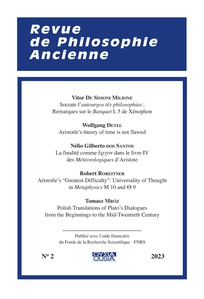
In his paper T. Mróz focuses on four most significant translators of Plato’s dialogues in Poland. They were: Felicjan Antoni Kozłowski (1805-1870), who was the first translator of Plato into Polish; Antoni Bronikowski (1817-1884), who was the most productive in the 19th century and kept on working on Plato in spite of unfavourable reviews; Stanisław Lisiecki (1872-1960), whose numerous translations remained unpublished; and finally Władysław Witwicki (1878-1948), whose renderings of the dialogues are still widely read. The paper presents their achievements and discusses the reception of their works.
Anyone whishing to receive an offprint should feel free to request it from the author via email.
“Oral History and the Classics” Team in Poznań
On Dec. 5th, 2023, Oral History and the Classics project team enjoyed the honour to visit Professor Marian Andrzej Wesoły at his home, in the vicinity of Poznań. Prof. Wesoły agreed to give an interview which will be included in the Oral History and the Classics collection on the website of the University of Hradec Králové.

Marian Wesoły is currently a professor emeritus of Adam Mickiewicz University in Poznań and lectures at the Jacob of Paradies Academia in Gorzów Wielkopolski. His entire academic career in Poland was connected to Poznań and Adam Mickiewicz University. His doctoral (1977) and postdoctoral (1992) dissertations were devoted to the history of Greek philosophy. In 2008 he received the title of a full professor. He was granted several foreign scholarships, e.g. in Italy (1980: University of Padova, 1983: Italian Institute for History in Naples, 1997: Villa I Tatti), Germany (1986/87: University of Tübingen), and Greece (1993, 2000, 2012: Academy of Athens). Prof. Wesoły is a co-founder of the „Peitho. Examina Antiqua” journal. For 20 years he has regularly participated in the Eleatica-Symposia, initiated by Prof. Livio Rossetti at the Alario Foundation in Ascea, close to the ruins of ancient Elea/Velia. Finally, we should mention that on the 100th anniversary of the Adam Mickiewicz University in Poznań (2019) he was awarded Knight’s Cross of the Order of Polonia Restituta.
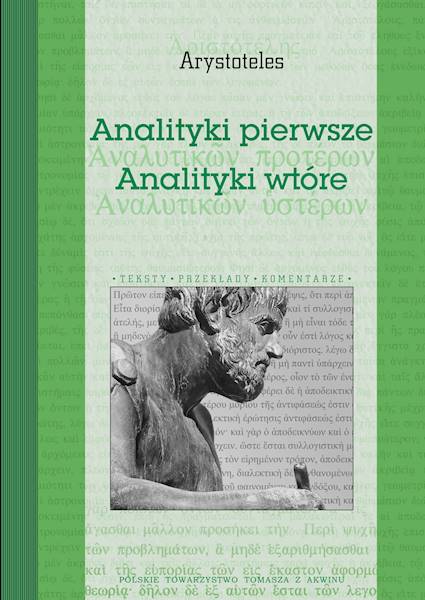
Prof. Wesoły is a specialist in Greco-Roman and Byzantine philosophies. In his numerous works he attempts to combine philological analyses with philosophical interpretation. Moreover, he is active as a translator and one of his most recent productions is a bilingual edition and commentary of Aristotle’s Analytica Priora et Posteriora (2020).
During the interview prof. Wesoły reflected on his academic and research curriculum, but also shared his views on perspectives of his discipline, on political constraints in researching ancient philosophy, recalled his memories of the great scholars whom had the opportunity to meet and with whom he collaborated etc. When the whole recording is edited and furnished with English subtitles, it will be make public and available on the project’s website.
The interview meeting with prof. Wesoły would not be possible without his kind consent and warm welcome of the team members by his family at their home. Those were Tomasz Mróz and Jaroslav Daneš who carried out the interview, while Jan Kadeřábek, a cinematographer and a cameraman, took care of all the technicalities.
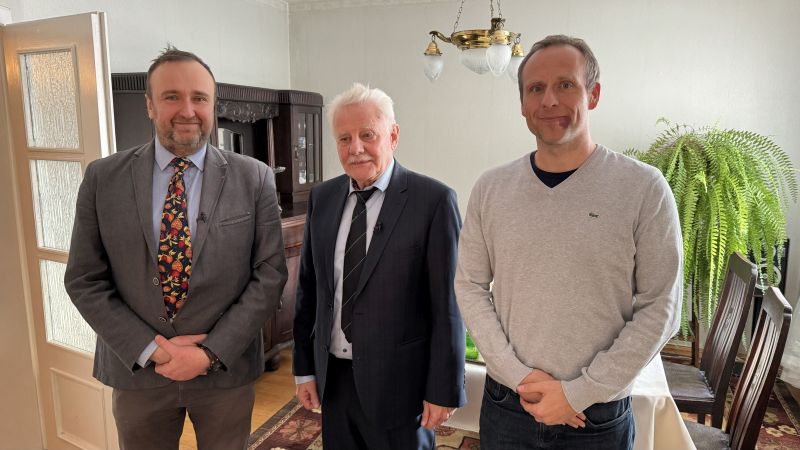
AΦR at the Twelfth Polish Congress of Philosophy in Łódź
In September (11th-16th) 2023 the 12th Polish Congress of Philosophy took place in Łódź. Three members of AΦR took part in this great event, and they delivered four papers there. Tomasz Mróz spoke about three traditions of doing philosophy and three interpretations of Plato at the ancient philosophy section, and the other three papers were presented in the section of Polish philosophy: on the influence of Aristotle on the works of W. Tatarkiewicz (Adrian Habura); on H. Jakubanis’ arguments for the reneval of philosophy in accordance to its ancient roots (Mariam Sargsyan); and on B. Kieszkowski, a researcher of Renaissance Platonism, on his life, works and their reception (again T. Mróz).
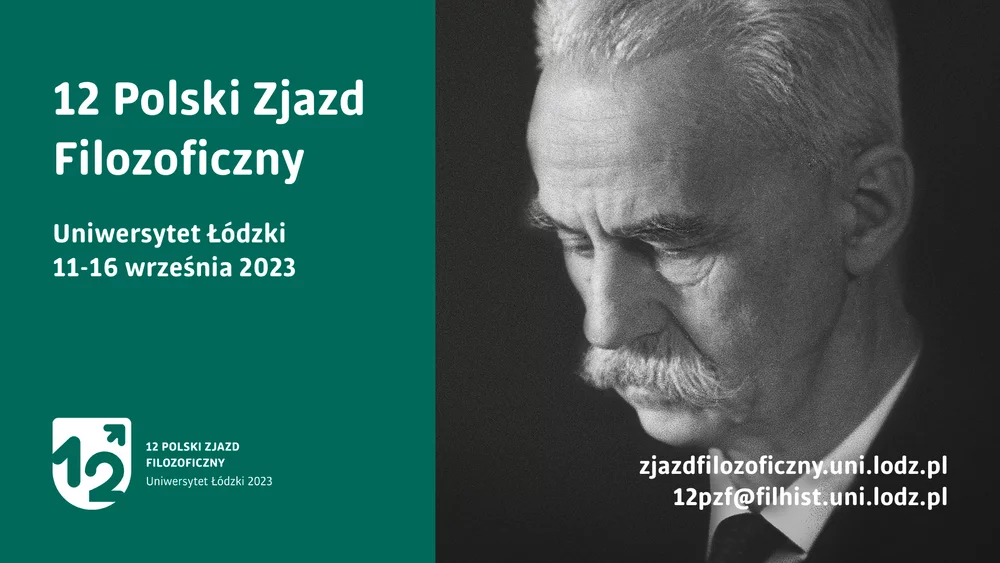
T. Mróz’s paper, Three Traditions of Doing Philosophy and Three Interpretations of Plato, was devoted to presenting three Plato scholars of the turn of the 20th century, Paul Natorp (1854–1924), a German, Paul Shorey (1857–1934), an American, and Wincenty Lutosławski (1863–1954), a Pole, and their interpretations of Plato. Mróz attempted to relate these three personalities of one generation and their Platonic studies with their native, dominant philosophical traditions: neo-Kantianism, Emersonian tradition and Polish Romantic Messianism. Their methodologies, views on the chronology of the dialogues and the status of ideas were discussed, as a starting point for future comparative research of their Platonic studies and reciprocal references.
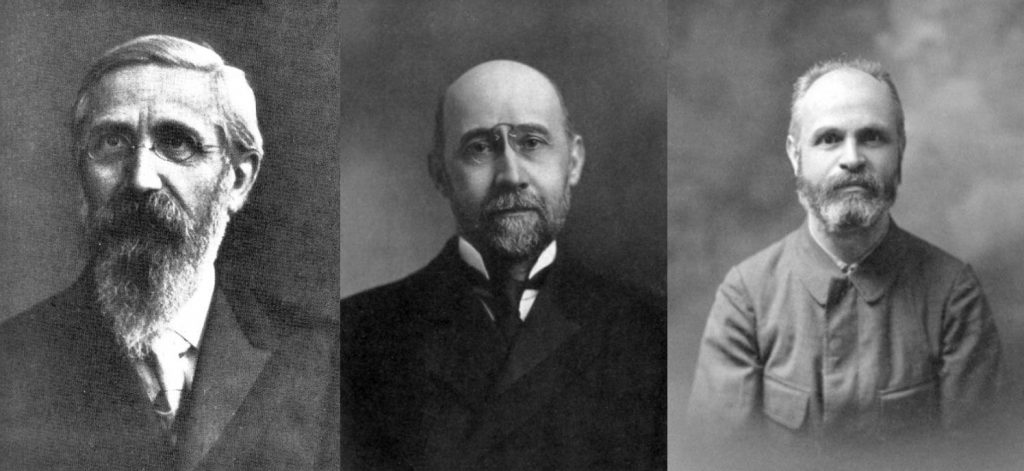
M. Sargsyan’s presentation was titled: Arguments of Henryk Jakubanis (1879-1949) for Renewal of Philosophy and Culture on the Ancient Model. It started with an introductory part about the biography of Jakubanis to familiarise the audience with his personality. Then the main part followed and it consisted in discussing Jakubanis’ work The Significance of Ancient Philosophy for the Modern View of the World (1910). Historical and philosophical research methods of Jakubanis were analysed and compared with those of his academic supervisor in Kyiv, Alexei Gilarov. Another comparative perspective was provided by the works of Tadeusz Zielinski, who was an internationally recognised scholar, and a kind, older colleague for Jakubanis.
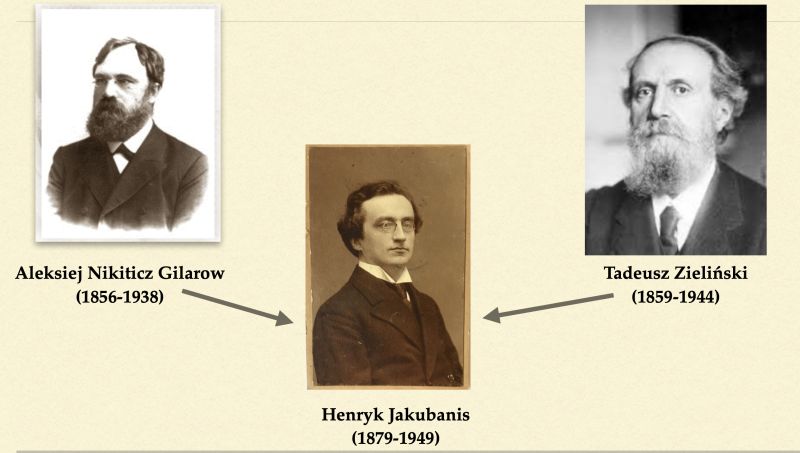
A. Habura’s paper was titled Aristotle in the Works of Władysław Tatarkiewicz and divided into two parts. In the first one, following Tatarkiewicz’s own statement, Habura distinguished two “images” of Aristotle’s philosophy which Tatarkiewicz had developed during his research career. Habura took into account various works of Tatarkiewicz and demonstrated that these two images were not contradictory, but rather complementary to each other. In the second part of his presentation Habura distinguished five aspects of Aristotle’s inspiration in Tatarkiewicz’s works, in accordance with Tatarkiewicz’s own reflection on this topic, and proved a significant, substantial and lasting impact of Aristotle on Tatarkiewicz’s original philosophical investigations.
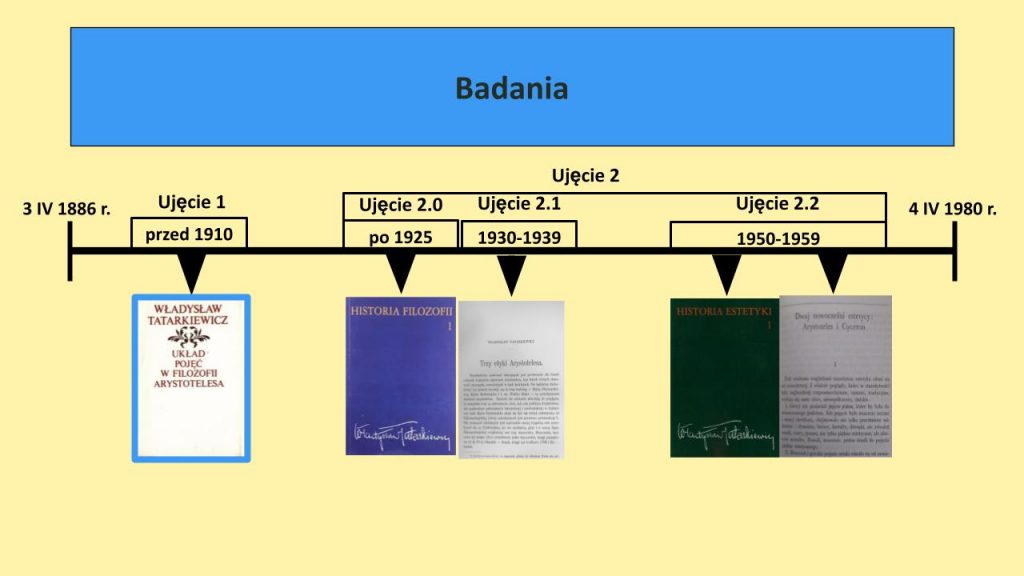
Second paper by Mróz was a presentation of a further development of his research on Bohdan Kieszkowski, a Polish scholar who was a specialist on Renaissance Platonism and Pico della Mirandola. Earlier this year Mróz discussed Kieszkowski’s biography, but this time the focus was on Kieszkowski’s works and their reception, that is, his polemic with another Polish expert in Renaissance philosophy, M. Heitzman (1899-1964), on the sources of Renaissance Italian Platonism, and a critical reception of Kieszkowski’s edition of Pico’s Conclusiones (1973) by a Portuguese researcher, José Vitorino de Pina Martins (1920-2010). Heitzman searched for the roots of philosophy in Florentine Academy in medieval thought, while Kieszkowski tended to emphasise the role of ancient sources. As for Pina Martins, he praised Kieszkowski’s erudition, yet pointed to a large number of errors in Conclusiones, resulting from various reasons, including Kieszkowski’s lack of precision in reading Latin texts.
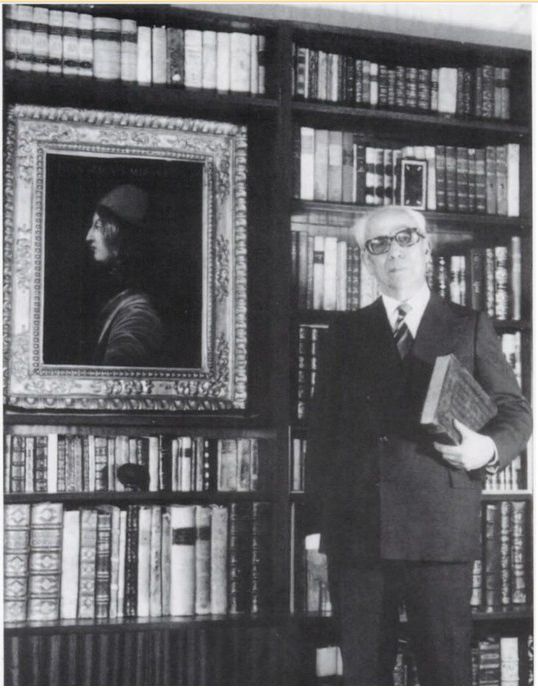
A Presentation on H. Jakubanis in Halle
On April 26, 2023, Mariam Sargsyan gave a talk at the Colloquium of Aleksander-Brückner-Zentrum für Polenstudien & Professur für Osteuropäische Geschichte in the Martin Luther University Halle-Wittenberg. The title of her presentation was: From Student at the Russian Imperial University in Kyiv to Respected Professor at the Catholic University in Lublin: The Career of Henryk Jakubanis, 1879–1949.
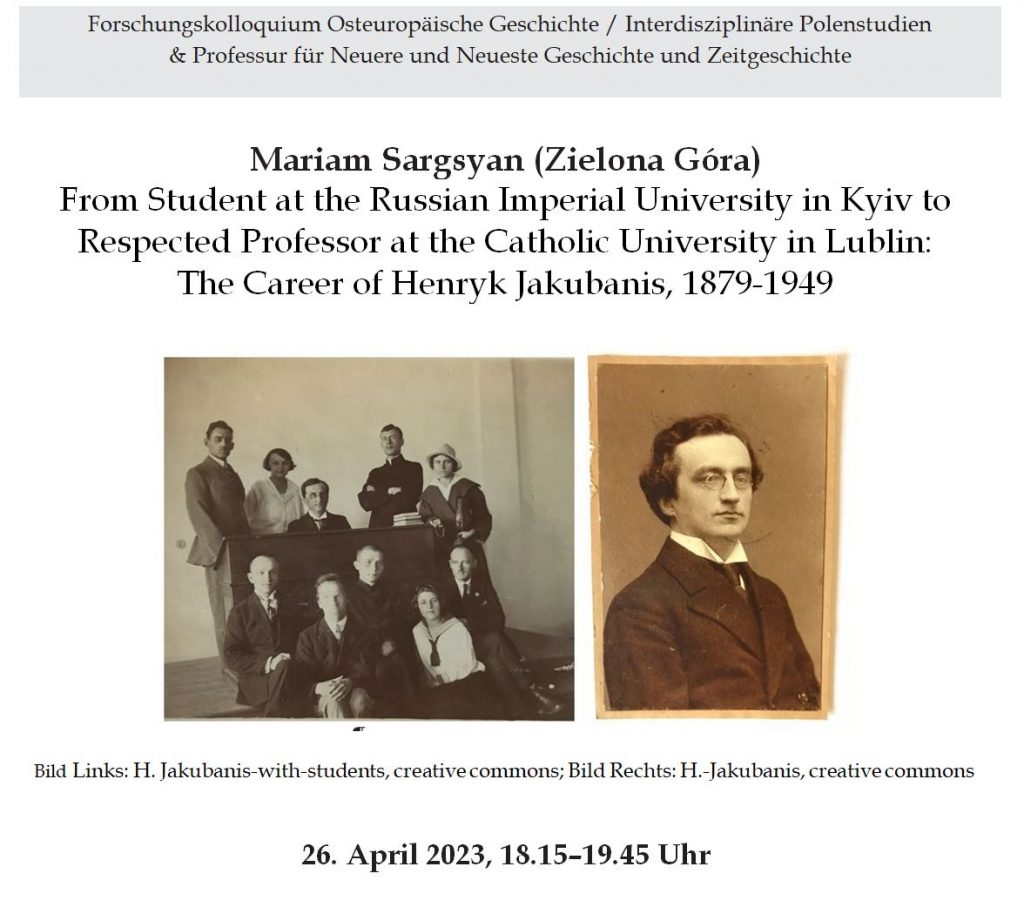
It was an important experience for M. Sargsyan to present a substantial part of her doctoral research, that is, the biography and major works of H. Jakubanis, to an audience consisting mostly of historians and not philosophers or historians of philosophy, and to receive their feedback and questions. The presentation, in addition to the highlights of Jakubanis’ life and career, included historical facts about Kyiv University, the 1st and 2nd World Wars, and peculiarities of academic life in pre-war Kyiv and post-war Lublin. The philosophical works of H. Jakubanis were also briefly discussed.
Results presented by M. Sargsyan, for example, approaching Jakubanis’ biography from the basically historical point of view, was in larger part an outcome of her NAWA scholarship at MLU Halle and her co-operation with the colleagues from Alexander-Brückner-Zentrum. It was an opportunity for her to take an attempt to compare life paths of Jakubanis with other imperial biographies, although at the moment it is impossible to research Kyiv archives.
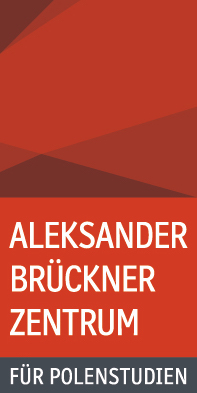
The audience at M. Sargsyan’s paper asked questiones on a variety of topics: the academic identity of H. Jakubanis, was he a classics scholar, a philosopher, a historian of philosophy, or an academic teacher. The question of the connection and relationship between H. Jakubanis and his supervisor, Alexei Gilarov (1856-1938), turned out to be interesting as well, for Gilarov had a significant influence on Jakubanis and his methods in historiography of philosophy, on his lecturing at the university, but at a certain moment, their paths diverged. Jakubanis’ relations with Tadeusz Zieliński (1859-1944), who had not spared benevolent gestures to his younger colleague, turned out to be particularly interesting for the audience. Methodological questions appeared as well and they concerned a possible reconstruction of Jakubanis’ academic contacts in a form of a network. What proved to be attractive for the audience was the graphic depiction of Jakubanis’ journeys.
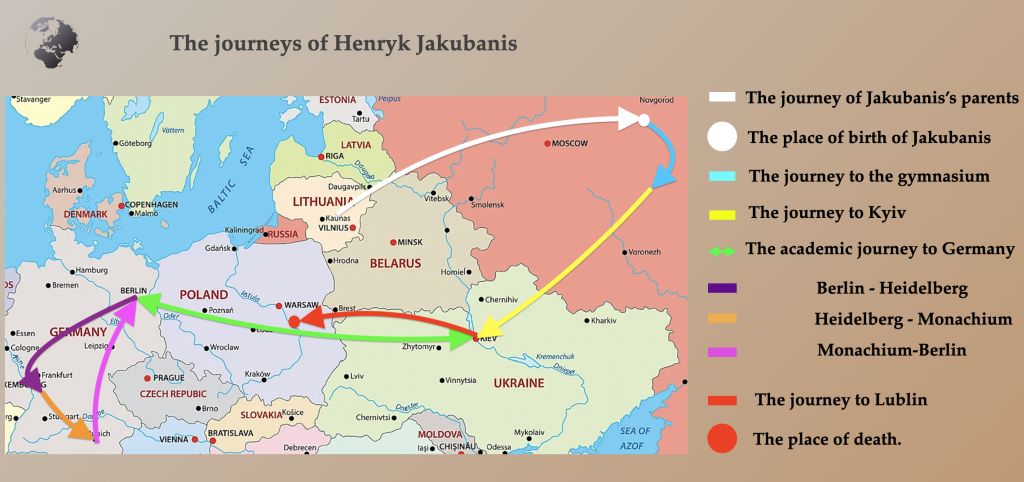
To sum up, M. Sargsyan’s presentation was informative for the public and beneficial for further development of her own research.
Recent commentaries